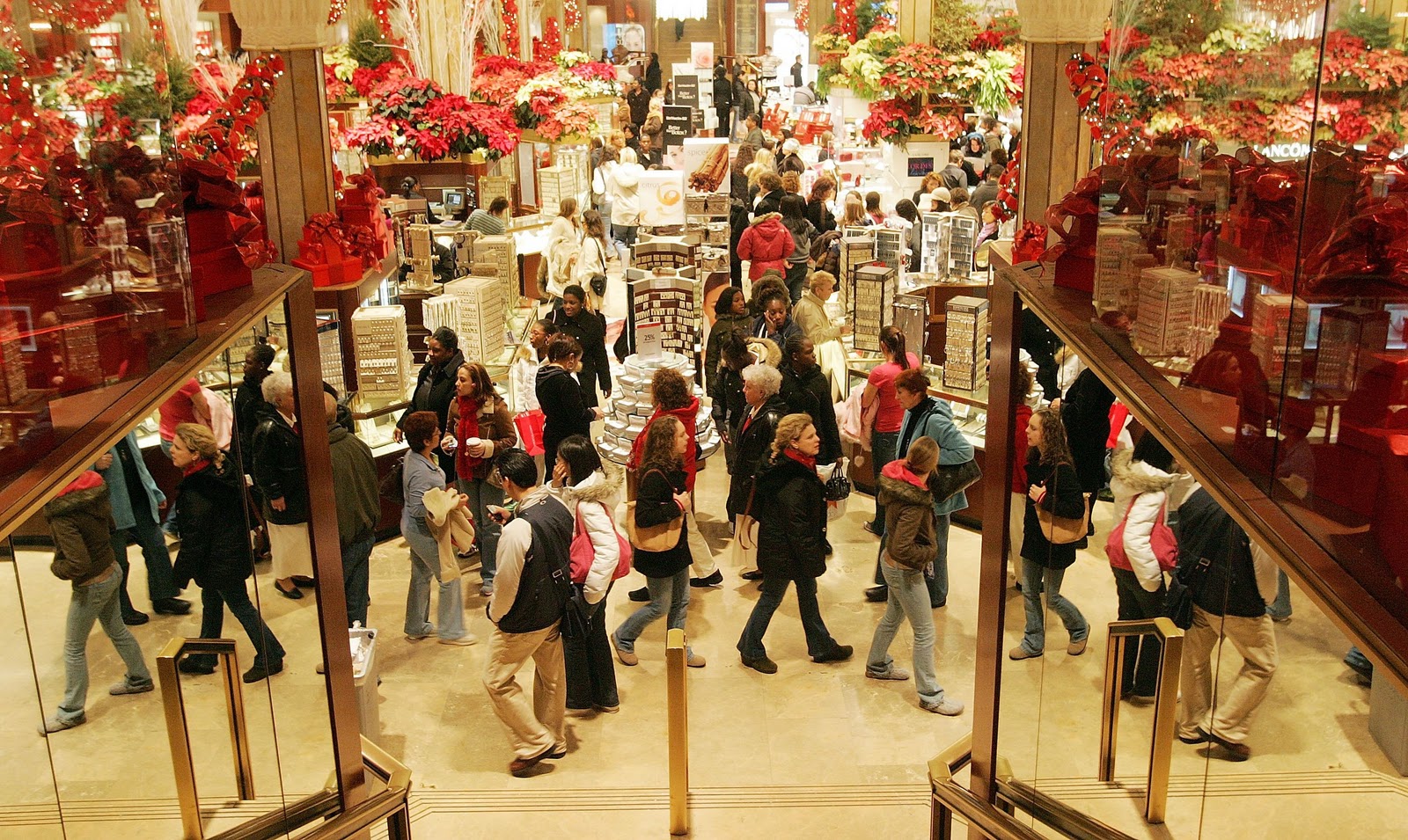Small Business
Holiday Spending Expected to Increase 10%
Holiday spending is expected to reach its highest point since the Great Recession, increasing 10 percent compared with the 2015 holiday season, according to PwC’s 2016 Holiday Outlook.
Oct. 10, 2016

Holiday spending is expected to reach its highest point since the Great Recession, increasing 10 percent compared with the 2015 holiday season, according to PwC’s 2016 Holiday Outlook.
However, this isn’t all good news for store-based retailers, as consumers stated they increasingly prefer to receive gifts of travel and entertainment rather than traditional gifts. The silver lining for retailers, though, is digital sales are expected to increase 25 percent. And consumers are moving towards smaller devices to carry out their online shopping, with mobile shopping up almost 25 percent. Additionally, Gen Z, who now represent the largest U.S. demographic, are heavy mobile users and they’re looking to buy tangible gifts more than experiences.
“The great news for all retailers is consumers are much more optimistic this holiday season,” said Steven Barr, PwC’s U.S. retail & consumer leader. “They are expected to spend 10 percent more on gifts, travel and entertainment. But it’s not all good news for store-based retailers because shoppers are expected to increase their digital shopping by 25 percent. They have also indicated they plan to shop at fewer physical stores as they concentrate their digital shopping to fewer web sites. The clear winners will likely be the major dot com destinations, including select store and leading brand web sites. The challenge for store-based retailers will likely be to leverage their distinctive advantages to stay relevant. Small, independent retailers and local artisans are expected to compete for consumers by offering personal service as well as unique and hand-made gifts. And, the larger format retailers are expected to provide the services and value that matter most to shoppers – including knowledgeable store associates, speedy check-out options, well stocked stores and great prices.”
PwC outlines the big trends that are expected to drive the 2016 holiday shopping season:
- Bigger holiday budgets: Shoppers will likely spend 10 percent more this holiday season; an average of $1,121 each. And consumers with annual household incomes less than $50,000 will likely increase their percentage spending levels even more than consumers overall.
- Chill for the holidays: Hipsters – upwardly mobile, college-educated millennials living in enclaves such as Austin, Brooklyn, Oakland, and Portland – will likely spend $500 more this season than consumers overall. And they will likely spend a hefty third of their holiday budget on themselves.
- Shopping is social for Gen Z: At 86 million strong, Gen Z’s influence is indisputable in the proliferation of interactive digital content, especially mobile video. These social media whiz kids are tactile; they like stuff – unlike millennials who prefer experiences. Reviews from actual product users appeal to them while ads don’t.
- Millennial parents think of others first: Millennial parents – often juggling full-time jobs while caring for young children – are almost twice as likely as other consumers to use a mobile device to pay for purchases. Far more optimistic about the economy, they start shopping earlier than consumers overall and enjoy it more (75 percent versus 61 percent).
- Holiday time … and the buying is easy: Used to frictionless checkout online, customers want a similar fast and easy checkout experience in-store. They also want Wi-Fi access to check product availability and prices. And knowledgeable sales associates to help find products and explain features.
- Thumbs a-tapping in a mobile wonderland: Anticipating an almost 25 percent increase in annual digital sales, retailers are boosting their investment in digital channels. Meanwhile, mobile shopping is up almost 25 percent over last year. From scouting products and monitoring deals to paying for products and tracking packages, shoppers are going mobile.
- I want it … now: Some 60 percent of retailers indicated they will provide both free shipping and free returns this holiday season – a must-have for consumers. Retailers are offering a variety of online and in-store ordering and delivery (or pick-up) options to provide the optimum mix of convenience, price, speed, and variety.
- There’s always a deal … somewhere: As global borders shrink and the world’s population becomes more mobile, consumers shop year-round, lured by a flurry of deals and discounts. In fact, 64 percent of consumers indicated they will begin holiday shopping before the start of Black Friday week. And 29 percent will have completed most of it by then.
- Brands matter: Brands matter to 80 percent of the survey respondents – whether established household names, local businesses, independent retailers, or new entrants. Almost 75 percent of consumers plan to shop locally while 56 percent will seek independent retailers.
- Season of caring: Shoppers are expected to give an average of $244 to their favorite causes: health and social services, community development, animal welfare, and disaster relief. And 75 percent of retailers indicated they will make charitable contributions. Consumers said they favor retailers who are committed to corporate social responsibility.
- Pets get a gift, too: Pet owners – almost half of all households nationwide – are expected to buy gifts for their animal companions. They will likely spend an average of $62, although millennials will likely outspend everyone else at $81 each.
